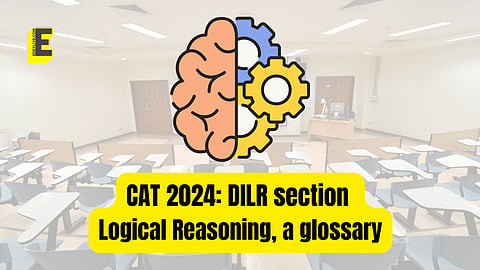

Logical reasoning is a crucial component of the Data Interpretation & Logical Reasoning (DILR) section of the Common Admission Test (CAT), serving as a tool to assess the strength of reasoning and evaluate the arguments presented.
Here are a few key terms related to logic and their meanings that may aid your preparation:
- Consistency: An attribute of a logical system that is so constituted that none of the propositions deducible from the axioms contradict one another
- Proposition: A statement that affirms or denies something and is either true or false
- Negation: A proposition that is true if and only if another proposition is false
- Axiom: A proposition that is always true and does not require proofs or disproofs to be true
- Tautology: A statement that is always necessarily true
- Contradiction: Opposite of consistency
- Logical relation: A relation between proposition
- Corollary: An inference that follows directly from the proof of another proposition
- Subject: The first term of a proposition
- Non sequitur: A conclusion that does not follow from the premises
- Predicate: What is predicted about the subject of a proposition
- Inductive Reasoning: Proceedings from particular facts to a general conclusion
- Deductive reasoning: Proceedings from general facts to a particular conclusion
- Proof: A formal series of statements given showing that if something is a fact, then something else necessarily follows from it
- Paradox: A self-contradiction
